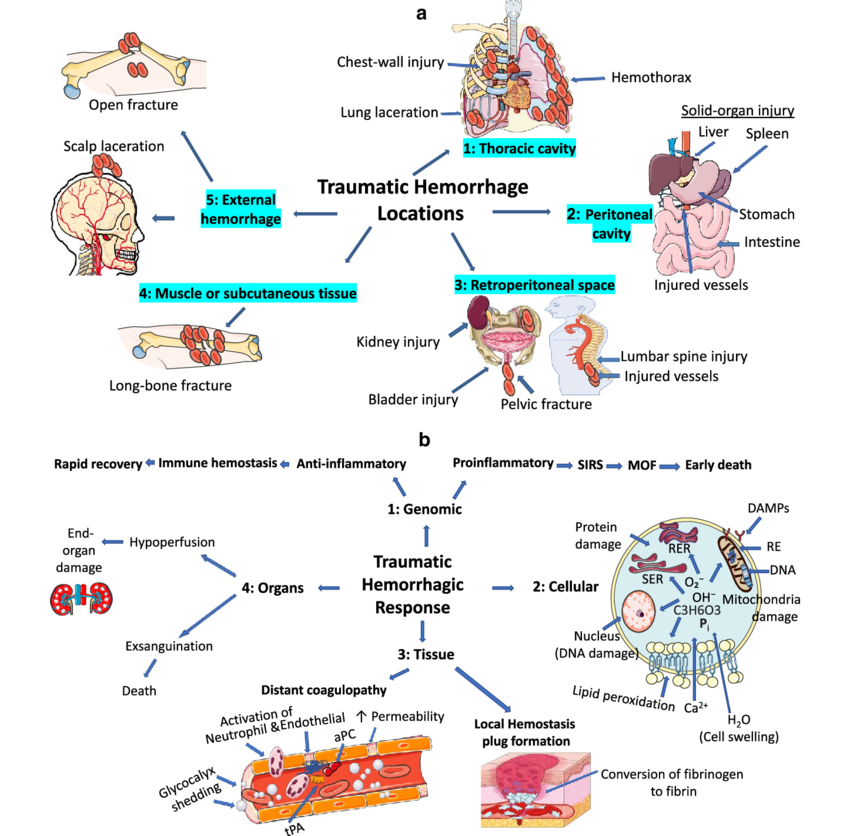Makindo Medical Notes"One small step for man, one large step for Makindo" |
|
|---|---|
| Download all this content in the Apps now Android App and Apple iPhone/Pad App | |
| MEDICAL DISCLAIMER: The contents are under continuing development and improvements and despite all efforts may contain errors of omission or fact. This is not to be used for the assessment, diagnosis, or management of patients. It should not be regarded as medical advice by healthcare workers or laypeople. It is for educational purposes only. Please adhere to your local protocols. Use the BNF for drug information. If you are unwell please seek urgent healthcare advice. If you do not accept this then please do not use the website. Makindo Ltd. |
Trauma Physiology
-
| About | Anaesthetics and Critical Care | Anatomy | Biochemistry | Cardiology | Clinical Cases | CompSci | Crib | Dermatology | Differentials | Drugs | ENT | Electrocardiogram | Embryology | Emergency Medicine | Endocrinology | Ethics | Foundation Doctors | Gastroenterology | General Information | General Practice | Genetics | Geriatric Medicine | Guidelines | Haematology | Hepatology | Immunology | Infectious Diseases | Infographic | Investigations | Lists | Microbiology | Miscellaneous | Nephrology | Neuroanatomy | Neurology | Nutrition | OSCE | Obstetrics Gynaecology | Oncology | Ophthalmology | Oral Medicine and Dentistry | Paediatrics | Palliative | Pathology | Pharmacology | Physiology | Procedures | Psychiatry | Radiology | Respiratory | Resuscitation | Rheumatology | Statistics and Research | Stroke | Surgery | Toxicology | Trauma and Orthopaedics | Twitter | Urology
Related Subjects:
|High Altitude Physiology
|Diving Physiology
|Trauma Physiology
|Exercise Physiology
|Gastric Physiology
|Rectal Physiology
🩸 Trauma physiology examines how the body responds to severe injury.
Understanding these responses is crucial for effective trauma care: stabilising vital functions, preventing secondary injury, and optimising recovery.
Trauma physiology integrates shock, inflammation, and metabolic stress.
Effective care requires rapid resuscitation, vigilant monitoring of organ systems, and multidisciplinary rehabilitation.
A trauma team must anticipate complications early — survival depends on recognising patterns of physiology as much as on treating the injuries themselves.

⚡ Physiological Responses to Trauma
🕑 Phases of Trauma Response
🫁 Key Organ Systems Affected
🛠️ Trauma Assessment & Management
⚠️ Complications
💪 Recovery & Rehabilitation
📌 Summary